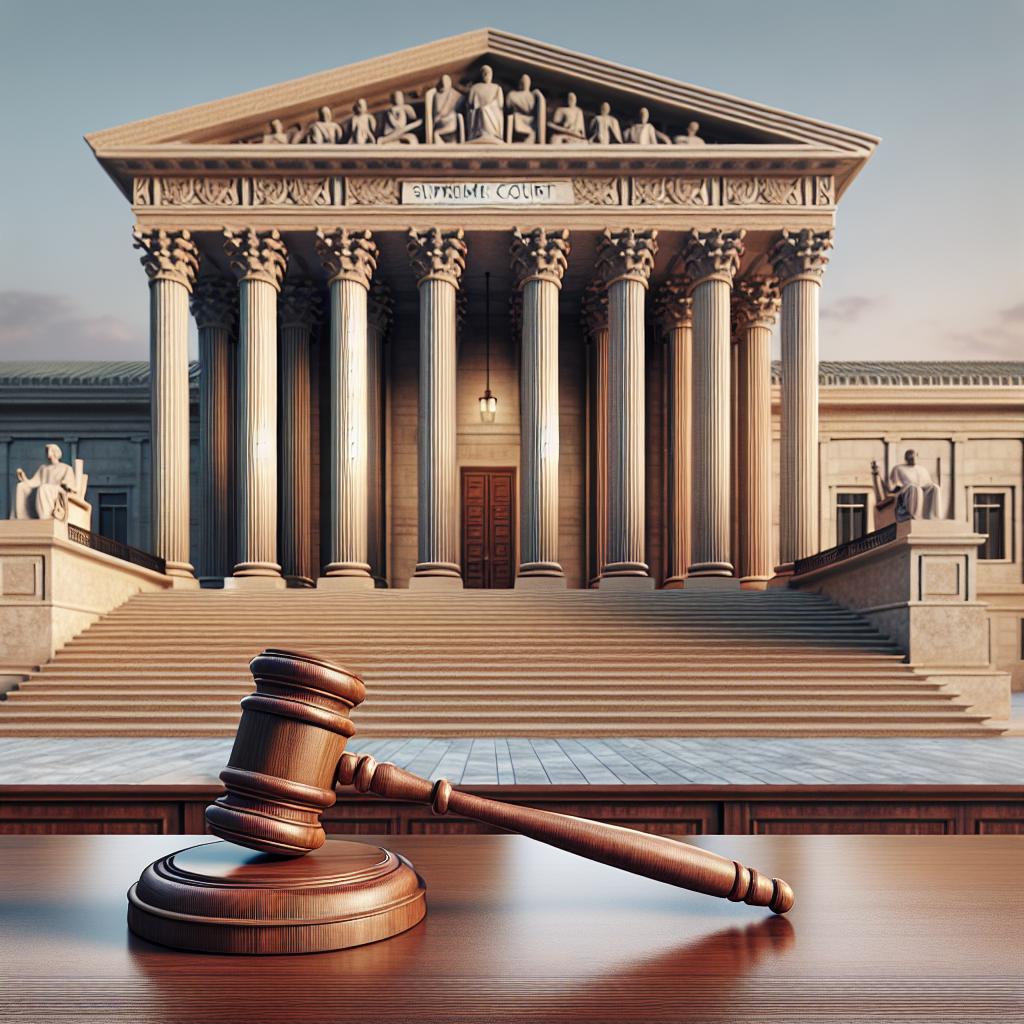

Supreme Court and gavel.
Want to target the right audience? Sponsor our site and choose your specific industry to connect with a relevant audience.
Prominent brand mentions across targeted, industry-focused articles
High-visibility placements that speak directly to an engaged local audience
Guaranteed coverage that maximizes exposure and reinforces your brand presence
Interested in seeing what sponsored content looks like on our platform?
May’s Roofing & Contracting
Forwal Construction
NSC Clips
Real Internet Sales
Suited
Florida4Golf
Click the button below to sponsor our articles:
Sponsor Our ArticlesIn a seismic shift that could impact future law interpretation and application, the United States Supreme Court, in a 6-3 decision, recently overruled a long-standing legal precedent known as the “Chevron deference”. “Today, the court places a tombstone on Chevron no one can miss,” wrote Justice Neil Gorsuch, reflecting the conservative majority view.
The Chevron deference, established in 1984 following a case involving oil conglomerate Chevron, afforded federal agencies sweeping powers to interpret laws and determine their best applications. With its termination, the court decisively curtails and significantly weakens the authorities of agencies like the Environmental Protection Agency. The ripple effects of this drastic decision will undoubtedly be felt throughout the federal bureaucracy.
The phrase “Chevron deference” harks back to the landmark Supreme Court case, Chevron v Natural Resources Defense Council. The ruling in this case, made in 1984, decreed that judges should defer to federal agencies when interpreting ambiguous aspects of statutes. It proposed that when Congress passes a law with unclear elements, or where there is a “gap”, it is the agency’s responsibility to fill in this gap. This, in practice, meant that federal government arms like the Environmental Protection Agency could create and enforce rules without fear of drawn-out legal battles.
This concept came under review in 2020 when herring fishermen were suddenly obliged to cover the costs of having federal monitors on their fishing expeditions. Commercial fishing companies, supported by conservative and corporate entities including billionaire Charles Koch, instigated two separate lawsuits in response. The initial outcome was a federal judge ruling that the National Marine Fisheries Service could legally impose these costs under Chevron deference.
This is a monumental victory for conservatives who have sought to overturn this precedent for the last four decades. From their perspective, the Chevron deference significantly inflated the power of the federal bureaucracy by expanding the prerogatives of executive agencies to implement laws. This, in effect, obligated courts and businesses contemplating legal challenges to regulations to yield to agencies’ interpretations of laws.
The overruling of the Chevron deference signifies a major setback for the current Biden administration, which opposed the removal of the precedent, citing disruptive consequences. The interpretation of Supreme Court’s amplified powers over the other branches of the US government is troubling for many, including liberal Justice Elena Kagan. Advocacy groups and progressives echo these concerns, prognosticating setbacks for clean water, public health, fair lending, worker safety, and other sectors where people rely on federal help.
The ruling does not impact past agency regulations and actions but the future could see more challenges to agency rules in court, and judges across the nation will likely have more say on what the federal government– and its bureaucracy– does. Long-term, we might see Congress making efforts to outline more explicit instructions in its laws about how agencies will implement them.
However, this might lead to confusion in large agencies carrying out different programs– with the presupposition that Congress can actually pass these laws. A prevalent concern is that the current Congress is somewhat dysfunctional and consequently unequipped to handle the task.
“Where the court is going… seems to defy the realities of gridlock in the Congress as it’s actually operating today,” says Philip Bobbitt, an expert on constitutional law at Columbia Law School.
Awaiting future clarifications and adjustments, it’s clear that the balance of power between the judiciary, legislative, and executive branches is in flux. The overruling of the Chevron deference marks a turning point in US governance, with far-reaching consequences yet to be fully understood.
News Summary A small plane crash in Tennessee on March 4, 2024, resulted in the…
News Summary Around 100 demonstrators were arrested at Trump Tower while protesting against the detention…
News Summary A plane crash near Nashville, Tennessee, on March 4, 2024, resulted in the…
News Summary Russian President Vladimir Putin has expressed skepticism regarding the U.S.-brokered ceasefire proposal aimed…
News Summary A motel shooting in West Point led to a rapid arrest by local…
News Summary Authorities in West Point are desperately searching for four missing children, including a…